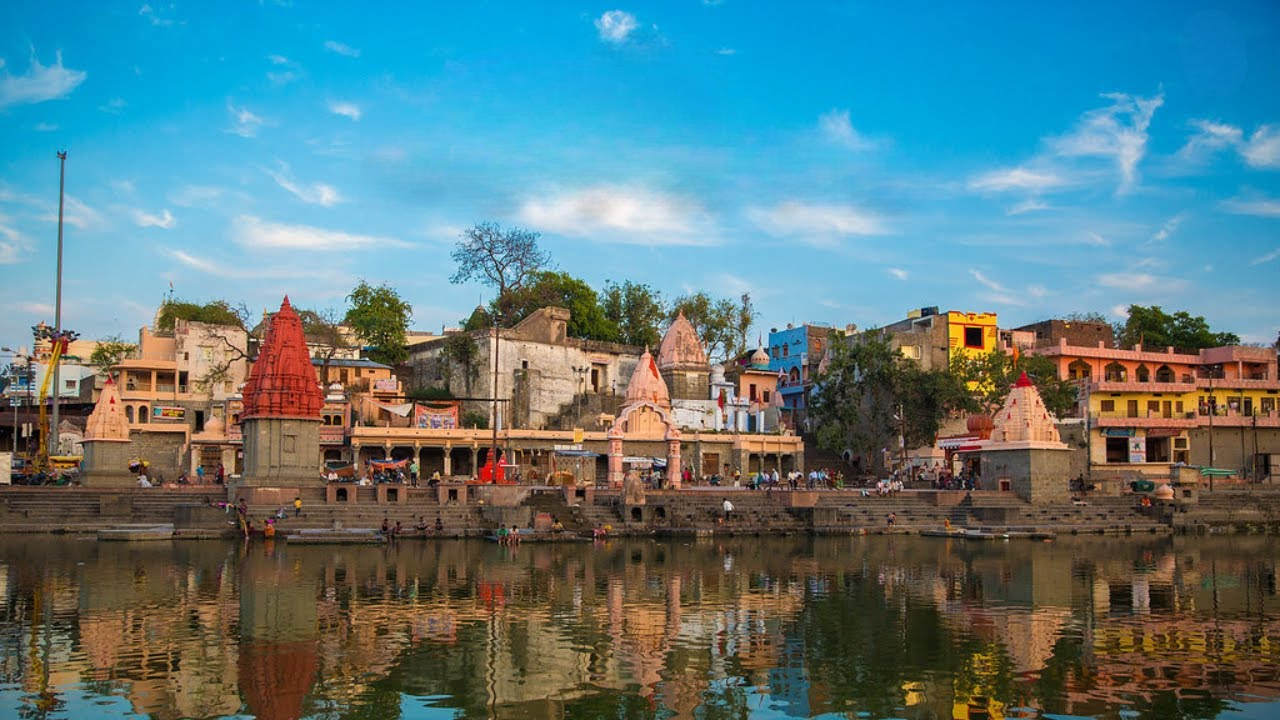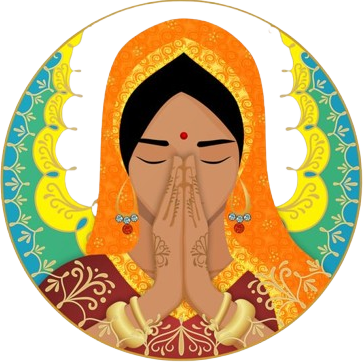What Are Ghats?
In the Indian subcontinent, a "ghat" refers to a set of steps or a riverbank that leads down to a river, lake, or other body of water. Ghats are common in many holy cities across India, and they play a vital role in religious rituals and social activities. They are places where devotees gather to take a holy dip, perform rituals, or simply spend time in prayer and reflection. In Ujjain, the ghats along the Shipra River hold immense religious significance. The river itself is considered sacred, and a dip in its holy waters is believed to cleanse the soul and wash away sins. The ghats, therefore, are not only places for physical cleansing but also for spiritual purification.
The Spiritual Importance of the Ghats in Ujjain
- Ujjain is an important center of Hindu pilgrimage and spirituality. The ghats here are deeply woven into the fabric of religious life, serving as the site for many sacred rituals and ceremonies. Here's why the ghats are so significant in Ujjain⭐:
- Purification of the Soul:The Shipra River is considered one of the seven holy rivers in India. According to Hindu belief, bathing in the sacred waters of the Shipra River, particularly at the ghats, is believed to purify the body and soul. This ritual is an essential part of the spiritual practices of devotees, as it is thought to cleanse them of sins and help in the attainment of moksha (liberation from the cycle of birth and death).
- Center of Devotion and Rituals:The ghats of Ujjain are central to the daily religious activities of the city. Every day, pilgrims and locals come to the ghats to offer prayers, light diyas (oil lamps), and perform rituals. These rituals often include the chanting of mantras, singing devotional songs, and making offerings to the deities, with a primary focus on Lord Shiva, who is the patron deity of the city
- Sacred Baths During Festivals: Devotees believe that visiting the Mahakal Temple The ghats take on extra importance during the major Hindu festivals celebrated in Ujjain, particularly the Simhastha Kumbh Mela. This grand event occurs once every 12 years, drawing millions of devotees to take a holy dip at the ghats. During the Kumbh Mela, the ghats become the focal point of spiritual activity, where people from all walks of life gather to bathe, pray, and seek blessings for spiritual purification.
- A Symbol of Eternal Life: The ghats also symbolize the concept of life and death. As many devotees gather to perform last rites for their loved ones at the ghats, the connection between the mortal world and the divine is made more apparent. The flowing waters of the Shipra represent the continuity of life, and the rituals performed at the ghats reflect the belief that life and death are part of a continuous cycle of existence.
- Social and Cultural Hub: Apart from their religious significance, the ghats of Ujjain also serve as a gathering place for the community. It is here that people come together to celebrate various cultural and social activities, particularly during festivals. These ghats often host spiritual discourses, devotional music performances, and community feasts, making them a key center of cultural and social life in the city.
Notable Ghats in Ujjain
- Ujjain is home to several prominent ghats, each with its own unique significance and history. Some of the most notable ghats include:
- Ram Ghat: Perhaps the most famous ghat in Ujjain, Ram Ghat is closely associated with Lord Rama, a central figure in the Ramayana. Devotees come here to take a dip in the river, believing that it helps in purifying the soul and offering salvation. Ram Ghat is particularly vibrant during the Kumbh Mela, where thousands of devotees gather to bathe and offer prayers.
- Harsiddhi Ghat: Located near the Harsiddhi Temple, this ghat is another important site for pilgrims. It is named after the Goddess Harsiddhi, who is worshipped here. The ghat is popular for its serene atmosphere, and it holds special significance during the festivals dedicated to Goddess Durga.
- Kailash Ghat: This ghat is closely associated with the Mahakaleshwar Temple and is often frequented by devotees who wish to seek blessings from Lord Shiva. It is a peaceful place to sit and meditate, and it plays an important role during the Maha Shivaratri festival, a major celebration in Ujjain.
- Patal Ghat: Situated at the southern end of Ujjain, Patal Ghat holds a unique significance as a site for performing post-death rituals. It is often visited by those who wish to perform rites for the departed souls of family members.
- Ganga Ghat: This ghat, though less known, is a peaceful location for devotees seeking solace and spiritual tranquility. It is a quiet spot where many come to meditate and reflect on their spiritual journey.
The Role of the Ghats in the Kumbh Mela
Ujjain hosts one of the four Kumbh Melas, which is held once every 12 years, making the ghats even more important during this time. The Kumbh Mela is a massive spiritual gathering, with millions of devotees and saints from all over India coming to the ghats of Ujjain to take a ritual bath in the Shipra River. The event is considered one of the largest religious congregations in the world, and the ghats are the central focus of this sacred festival. During the Kumbh Mela, the ghats are adorned with lights and decorations, and the atmosphere is charged with spiritual fervor. Devotees believe that bathing at the ghats during this auspicious time helps to cleanse them of their sins and bestows blessings for the future.
Conclusion
The ghats in Ujjain are far more than just riverbanks—they are a powerful representation of faith, spirituality, and tradition. Serving as sacred sites for purification, devotion, and ritual, these ghats are at the heart of the religious life in Ujjain. Whether it is the daily ritual of bathing in the holy waters of the Shipra River or the grand celebrations during the Kumbh Mela, the ghats of Ujjain offer a glimpse into the deep spiritual and cultural roots of this ancient city. They continue to play a vital role in shaping the spiritual experiences of millions of pilgrims who visit Ujjain to seek divine blessings, purification, and solace.

